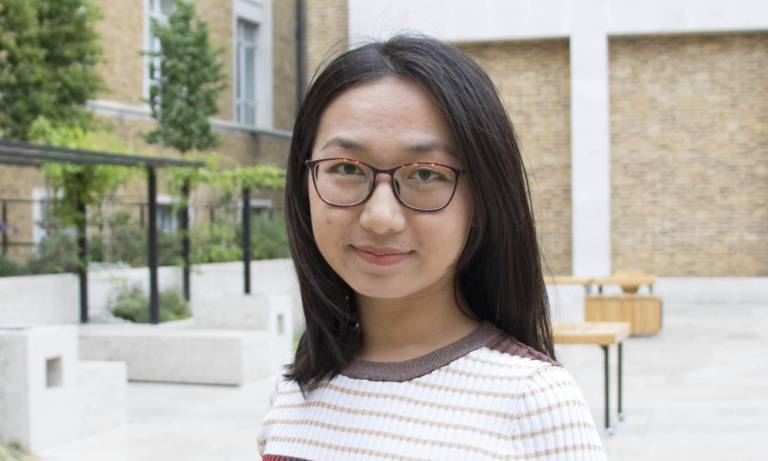Ge Yang, MSc Ophthalmology

1. What is your educational background?
In 2018, I graduated from medical school in Guangzhou, China. I started my MSc at the Institute of Ophthalmology straight after.
2. What are your motivations for pursuing a graduate-level qualification?
I would like to become an ophthalmologist. A graduate-level qualification will help me to achieve my ambition.
3. Why did you apply to UCL for graduate study?
Having researched many other university programmes, I found that this course was ideal for my needs. Also, it meant that I would be able to study in Moorfields Eye Hospital, which would provide me with great experience.
4. What is the best thing about your course?
The lectures in my course are taught by clinicians and scientists from Moorfields Eye Hospital and the Institute of Ophthalmology. This means that I am able to acquire first-hand knowledge from experts in their fields as well as learn from their valuable experiences and comments.
5. What do you find interesting about your field of study and what inspires you?
There are many subspecialties in ophthalmology. Each subspecialty could have numerous topics worth studying. As technologies such as multimodal imaging, artificial intelligence is being used in this field, ophthalmology is developing quickly.
6. What are your career plans once you’ve completed your current programme of study at UCL?
I may apply for a PhD or clinical training.
7. Has there been an element of your degree programme that has impressed you or been particularly valuable?
In the second year, we will be able to observe in Moorfields Eye Hospital and study from clinical cases. I am really looking forward to this.
8. How do you think the system of learning/researching at UCL differs from that in your own country?
Yes, there are many differences.
At UCL, students can study one-year or two-year master’s degrees. In China, students have to study three years until they can graduate.
Also, in China we do not have postgraduate taught programmes in medicine-related subjects. Instead, we have research and professional master’s degree which is basically three-years training in a laboratory or hospital environment.
9. Is there anything else you would like to say about your time at the Institute of Ophthalmology?
This course is attended by students and lecturers from different backgrounds which provided me with a unique experience. I found the lectures challenging at the beginning, but this pushed me to learn more.
 Close
Close

